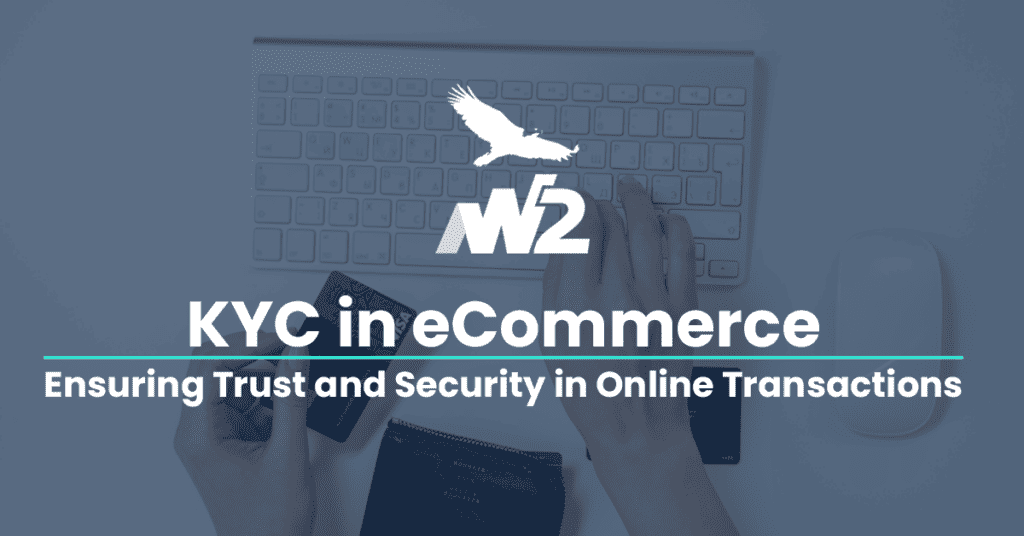In the fast-paced world of eCommerce, ensuring security and trust in online transactions is of paramount importance. With the increasing frequency of cyber fraud and identity theft, businesses must adopt robust measures to safeguard their customers and protect their reputation. One such crucial process is the implementation of KYC (Know Your Customer) in eCommerce. In this article, we will delve into what KYC in eCommerce is, its significance, and how to perform it effectively to create a safer online shopping environment for both businesses and consumers.
What in KYC in eCommerce?
KYC in eCommerce, refers to the process of verifying the identity of customers who engage in online transactions. It involves gathering and verifying essential information such as name, date of birth, and address about customers to ensure that they are who they claim to be. The primary goal of KYC is to prevent fraud, money laundering, and other illicit activities that may occur during eCommerce transactions.
The Significance of KYC
The adoption of KYC in eCommerce is vital for several reasons:
- Fraud Prevention: By verifying customer identities, businesses can significantly reduce the risk of fraudulent transactions. This helps in protecting both customers and businesses from financial losses.
- Compliance with Regulations: eCommerce businesses are subject to various regulations, including anti-money laundering (AML) and counter-terrorism financing (CTF) laws. Implementing KYC measures helps companies comply with these legal requirements.
- Building Customer Trust: Online shoppers are often cautious about sharing personal information due to security concerns. By demonstrating a commitment to security through KYC, businesses can build trust with their customers, encouraging repeat purchases and fostering long-term relationships.
- Mitigating Chargeback Disputes: Chargebacks can be costly for eCommerce merchants. By performing KYC, merchants can verify customer details, reducing the likelihood of chargeback disputes. There are also businesses who specialise in chargeback fraud prevention, such as W2’s partner Sift.
- Enhancing Reputation: A strong KYC process reflects positively on a business’s reputation. It shows that the company prioritizes customer safety and security, attracting more potential buyers.
How to Perform KYC
Implementing KYC in eCommerce requires a structured approach. In many cases, simply performing a KYC data check isn’t enough to truly build a picture of the customer. That’s why platforms such as W2 exist to enable eCommerce businesses to combine multiple services including AML, document verification and fraud prevention. A typical onboarding process could be as follows:
- Customer Information Collection: When a customer creates an account or makes a purchase, gather necessary information such as name, address, date of birth, and contact details. Ensure that your website’s privacy policy clearly explains how this data will be used and protected.
- Address Verification: Verify the customer’s address by cross-referencing it with reliable databases to confirm that the address in question exists. This check is often performed at the beginning of an onboarding journey as it can be the most cost efficient for businesses. If the address isn’t found, the business then doesn’t have the cost of further checks.
- KYC Data Checks: Typically, the next step in the onboarding process will be a KYC check. This verifies name, address, and date of birth against data providers such as Credit Reference Agencies, Telecom, and Utility providers. The check can be performed in seconds so ensures the onboarding process is smooth for consumers.
- Document Verification: In conjunction or as a failover to a KYC data check, document verification can also be used. Businesses can request customers to provide valid identification documents, such as government-issued IDs or passports, to verify their identity. In many instances, the document is then compared to a facial comparison ‘selfie’, to not only ensure that the document is legitimate, but also to provide a match against the individual attempting onboarding.
- AML Screening: Not only is verifying that a customer is who they say are vital step of compliant onboarding, but AML screening is a key aspect of the process also. It is integral for eCommerce businesses to verify if customers are politically exposed, sanctioned, or have adverse media against them. In doing so, businesses become aware of any risk of money laundering through their business and can take the necessary action to investigate further.
- Ongoing Monitoring: When a customer has passed through the onboarding process, it is also vital, especially for business with repeat transactions, to have an AML monitoring process in place. Continuously monitor customer accounts gives information on changes in customer situations. Just because a customer passes onboarding with no AML alerts, doesn’t mean that will remain true throughout the lifetime of being a customer.
- Staff Training: It is also vital that staff are trained to detect fraud and high-risk individuals. Systems such as W2 will notify customers of any failed checks, sanctions individuals, or potential fraud, but it is also key that staff within the eCommerce business have the correct training to identity and deal with any issues.
KYC in eCommerce is a crucial aspect of creating a secure and trustworthy online shopping environment. By adopting robust KYC measures, businesses can prevent fraud, comply with regulations, build customer trust, and enhance their reputation. Implementing a comprehensive KYC process involves collecting customer information, verifying documents, using watchlist screening, and ensuring ongoing monitoring. Embracing AI-powered solutions can further enhance the efficiency and accuracy of the process.
At W2, we specialize in providing cutting-edge KYC solutions for eCommerce businesses. Simply fill out the contact form here to find out more about how we can develop a custom workflow fit for your business.

